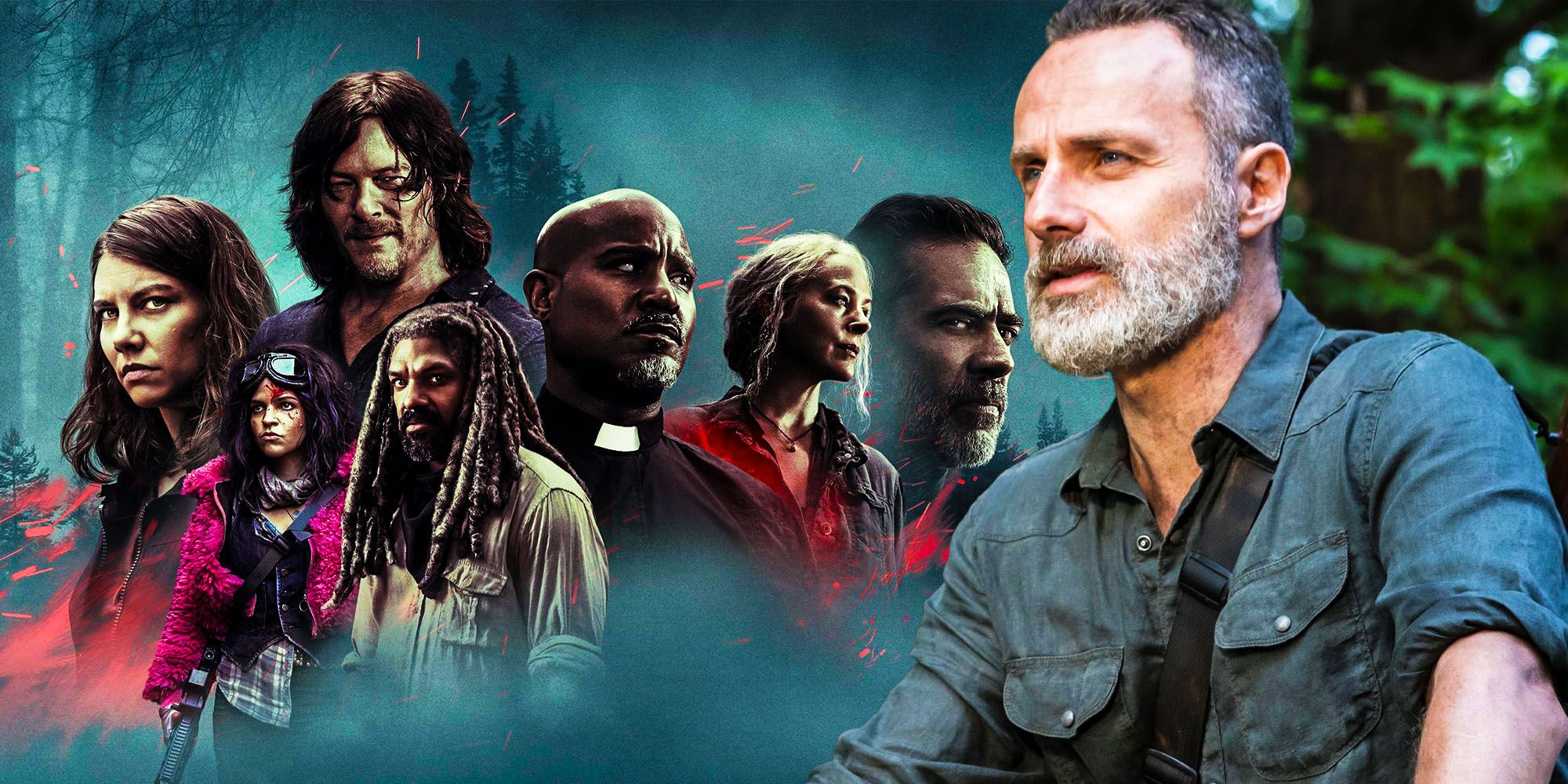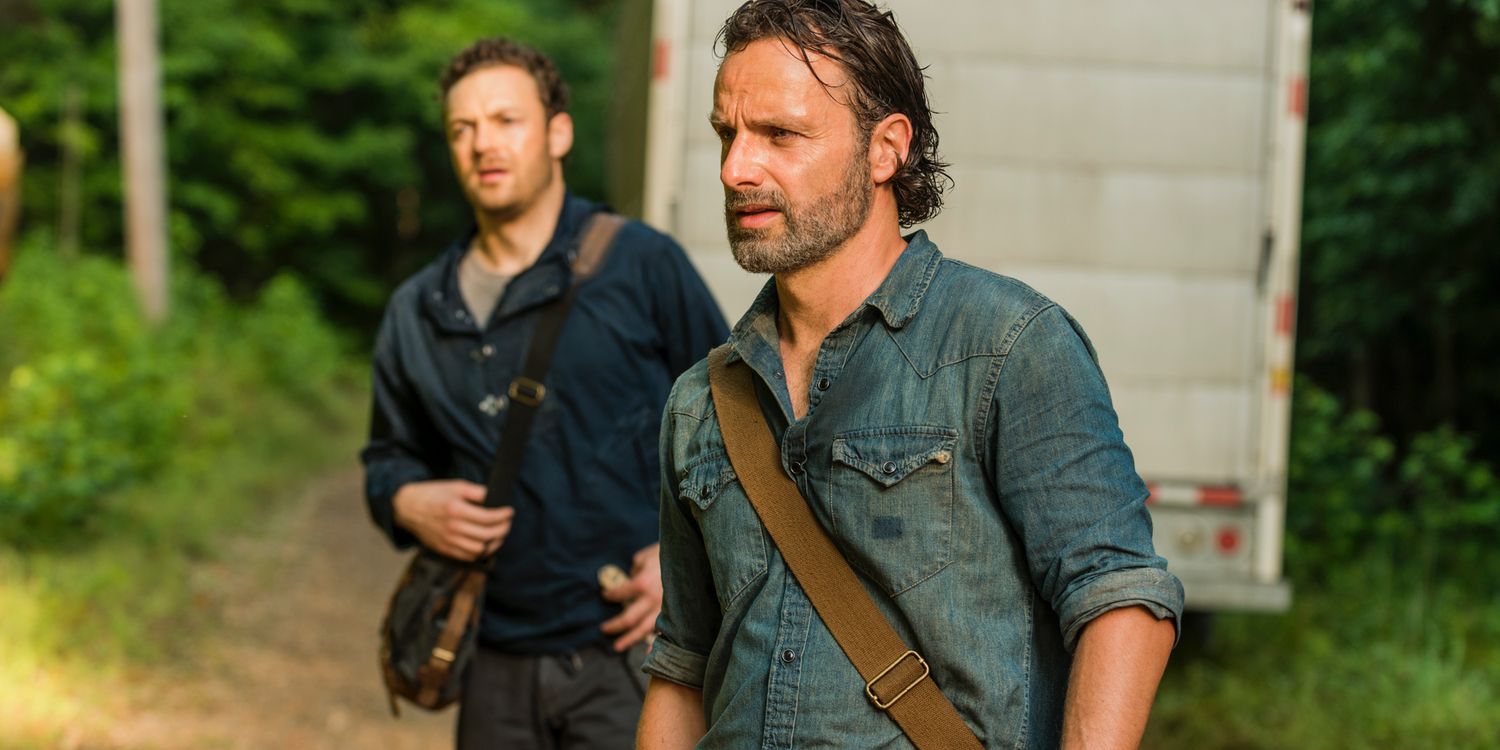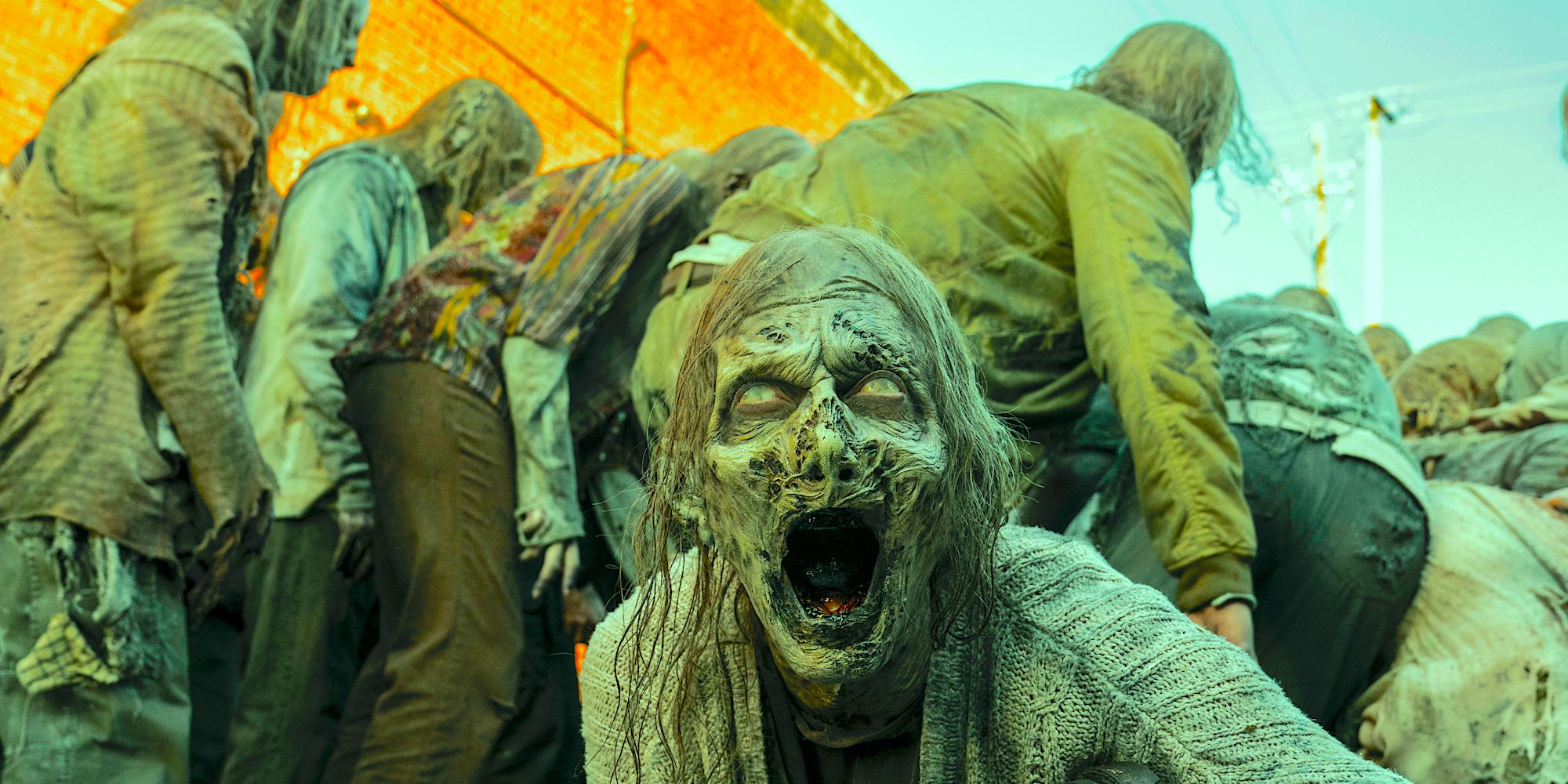Warning! Contains spoilers for The Walking Dead season 11!
How and why did the plans for The Walking Dead season 12 change over the years? The Walking Dead season 11 marked the main show's final run, bringing 12 years of bites, beheadings, and barely-audible mumbling to a close. Though TWD season 12 isn't happening, that wasn't necessarily always so. In the "Letter Hacks" section of issue #161 in 2016, Robert Kirkman was asked about the future of AMC's Walking Dead TV show in relation to his comic. The writer replied with, "It took us 6 seasons to get to [issue] 100, it won’t take us 6 years to get to 200 and that will take us to season … TWELVE. And we’ll still be ahead of the show at that point." While Kirkman's answer certainly isn't confirmation that everyone behind the scenes was banking on The Walking Dead reaching season 12, the quote does at least prove he and AMC were entertaining the possibility. More recently, Jeffrey Dean Morgan (The Walking Dead's Negan) confirmed season 11 wasn't the intended end-point. So why did The Walking Dead's season 12 designs never materialize?
One potential factor behind The Walking Dead season 12 changing its plans is the abrupt surprise ending to The Walking Dead's comic series. Robert Kirkman's "it won’t take us 6 years to get to 200" comment suggested that, at the time, he was considering a double-century with Rick Grimes. In July 2019, however, the final issue (#193) of The Walking Dead released without fanfare or warning. In a letter to fans, Kirkman explained how he originally planned to write as far as issue #300, but came to realize he didn't have enough material. The Walking Dead creator also described trying to expand his story, before ultimately giving in and opting to make the Commonwealth arc his final stand. When Kirkman was talking about issue #200 and season 12 in 2016, therefore, perhaps he was still of a mind to continue Rick's story. Or maybe he knew the end was nigh, but wanted to maintain the veil of secrecy that continued all the way through to issue #193's release. Either way, the possibility of TWD season 12 was always going to be slim with less than 200 issues to draw from.
The Walking Dead Has Outgrown The Source Material
With the CRM and fast zombie storylines incoming, The Walking Dead is moving well beyond the limits of its source material, meaning an early comic ending cannot be the sole reason The Walking Dead season 12 isn't happening. Inevitably, ratings must've played their part. When Kirkman's comments were made in 2016, The Walking Dead was in its seventh season, at the height of its powers. Nevertheless, a decline was emerging, and numbers have fallen significantly season-on-season. Were The Walking Dead still pulling double-digit ratings in seasons 10 and 11, a season 12 would've surely come to pass. Plus, if AMC was already eyeing its zombie viewership with concern, the arrival of a very real pandemic might've sealed The Walking Dead's fate.
The show had to continue without one of its strongest assets, so there's also the loss of Andrew Lincoln as Rick Grimes to consider. Departing early in The Walking Dead season 9, the zombie apocalypse continued on bravely without its original lead, but like most TV shows who lose their star (The Office, Two & A Half Men, etc.), its days felt numbered. Those TWD season 12 dreams slipped further away. Rick did, in fact, return to The Walking Dead at the very end of the series finale, something that fans didn't expect. Many believed that his return was to set up a possible TWD season 12. Sadly though, he is still far away from the rest of the group, so a last-minute season 11 reunion wasn't possible. Therefore, Rick and Michonne's arc will be ending with a six-part miniseries, rather than the planned Walking Dead movies or a TWD season 12.
Perhaps the change of plans surrounding The Walking Dead season 12 has more to do with audience viewing habits and shifting business models. A lack of comic books, dwindling ratings, and departing actors all played their part in bringing The Walking Dead to an early close, but the volume of spinoffs in the pipeline — as well as setup for big future storylines — suggests AMC values The Walking Dead more as a multi-platform brand than as the traditional "main show plus spinoffs" format. As streaming increasingly dominates, the MCU, Star Trek, Star Wars, and many more are heading in that direction. The Walking Dead might be joining that esteemed club before long.
The Walking Dead Ended At The Right Point
Since TWD has outgrown its source material and it's so vastly different from its 2010 premise, it's better that The Walking Dead season 12 didn't happen. The series has grown substantially since its humble beginnings in the early 2010s. Alliances have shifted, few TWD season 1 characters have survived, and the problems surrounding Rick and his group have grown considerably in scope. Ultimately, it's a very different show now than it was at its beginning. Therefore, TWD has decided to go the route of spinoffs rather than continue the main storyline.
Since the main story's viewership started dwindling, increased interest in the spinoff stories like those in Fear The Walking Dead led the way. The spin-offs have the opportunity to grab fresh audiences that a season 12 doesn't — viewers who now don't need to binge up to 11 seasons of The Walking Dead to understand what's going on. The success of The Walking Dead spinoffs proves that there is a market for TWD projects outside the main show, and at different points in the canon. Plus, continuing TWD past its source material could prove a problem for the series, as it was the downfall of Game of Thrones. Rather than risk another hated-finale debacle. The Walking Dead made the right choice ending when it did.



